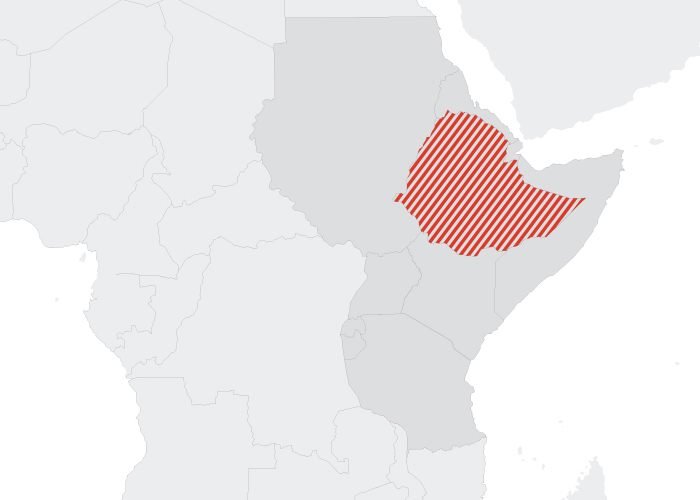Geneva-Kampala, 13 May 2019 — Ethiopia’s human rights review, tomorrow at the UN Human Rights Council (“the Council”), should be leveraged to consolidate the reforms initiated since the appointment of Dr.
Abiy Ahmed as Prime Minister, in April 2018. The country’s Universal Periodic Review (UPR) takes place amidst an ongoing significant legal and policy reform effort, which may result in broadening of democratic and civic space in the country.
“Tomorrow’s UPR review should buttress domestic human rights reforms,” said Hassan Shire, Executive Director, DefendDefenders. “The government and UN member states should make sure the UPR has lasting impact by taking stock of the progress achieved so far, identifying outstanding issues, and outlining a road map for further reforms.”
Since 2 April 2018, Ethiopian authorities have released political prisoners, closed detention centres, lifted the State of Emergency, appointed women and civil society leaders to high-ranking positions, made peace with Eritrea, and repealed and replaced the draconian 2009 Civil Society Proclamation. Human rights defenders (HRDs) are returning to the country and rebuilding an independent civil society, in a context in which authorities have publicly expressed a commitment to the human rights of all Ethiopians.
However, systemic human rights issues remain unaddressed. They include repealing repressive legislation, such as the Anti-Terrorism Proclamation, land conflict, internal displacement and ethnic politics, and the challenge of ensuring accountability for past and ongoing human rights violations.
“For the first time, there is hope that Ethiopia’s UPR will be used in a meaningful way, as there is a political will that did not exist in previous reviews,” said Nicolas Agostini, Representative to the UN for DefendDefenders. “Enlarging and protecting civic space should be central to both states’ recommendations and Ethiopia’s commitments.”
Ahead of tomorrow’s review, DefendDefenders and partner NGOs submitted a report[1] addressing civic space in the country, namely the rights to freedom of expression, peaceful assembly and association, as well as the situation of human rights defenders, civil society and journalists. A few days ago, DefendDefenders published a report[2] on the situation and hopes of HRDs in Ethiopia.
The UPR is a process set up by the Human Rights Council, the UN’s main human rights body. The human rights record of every UN member state is reviewed every four-and-a-half, in Geneva, Switzerland, a process during which the government of the state under review receives recommendations from its peers. NGOs can participate in the process by submitting alternative reports and engaging in advocacy at the national and UN levels.
— ENDS —
[1] DefendDefenders, “Ethiopia: DefendDefenders submits joint report to the 33rd Session of the UPR Working Group,” 5 October 2018, https://defenddefenders.org/submissions/ethiopia-defenddefenders-submits-joint-report-to-the-33rd-session-of-the-upr-working-group/ (accessed 29 April 2019).
[2] DefendDefenders, “Turning the Page: Rebuilding Civil Society in Ethiopia,” 7 May 2019, https://defenddefenders.org/publication/turning-the-page-rebuilding-civil-society-in-ethiopia/ (accessed 8 May 2019).

